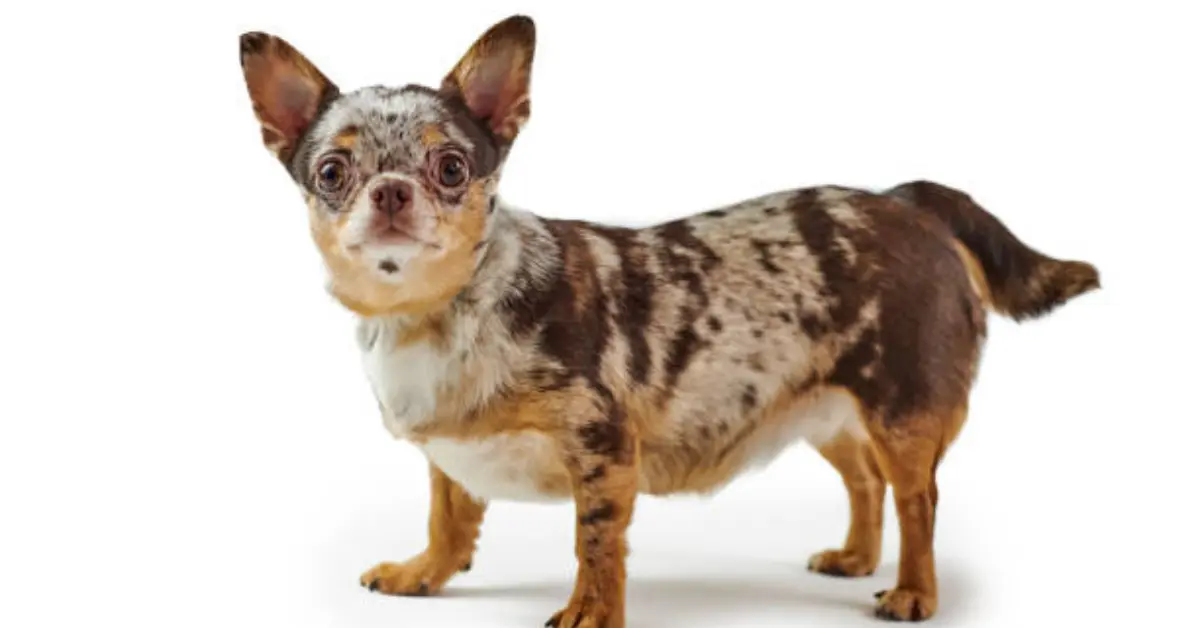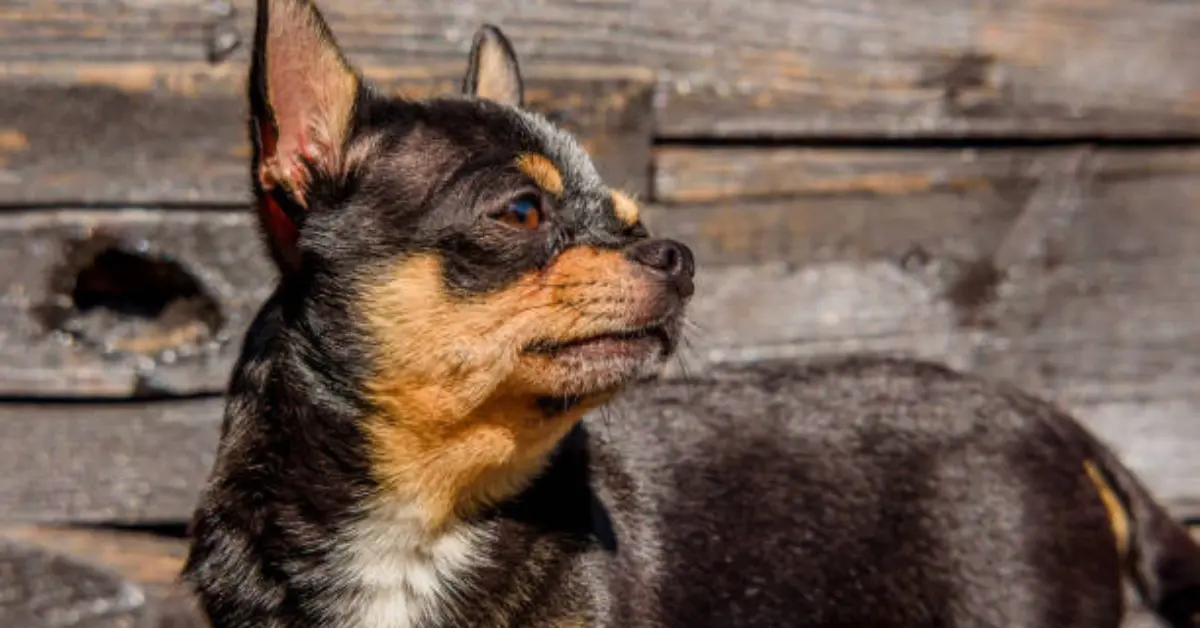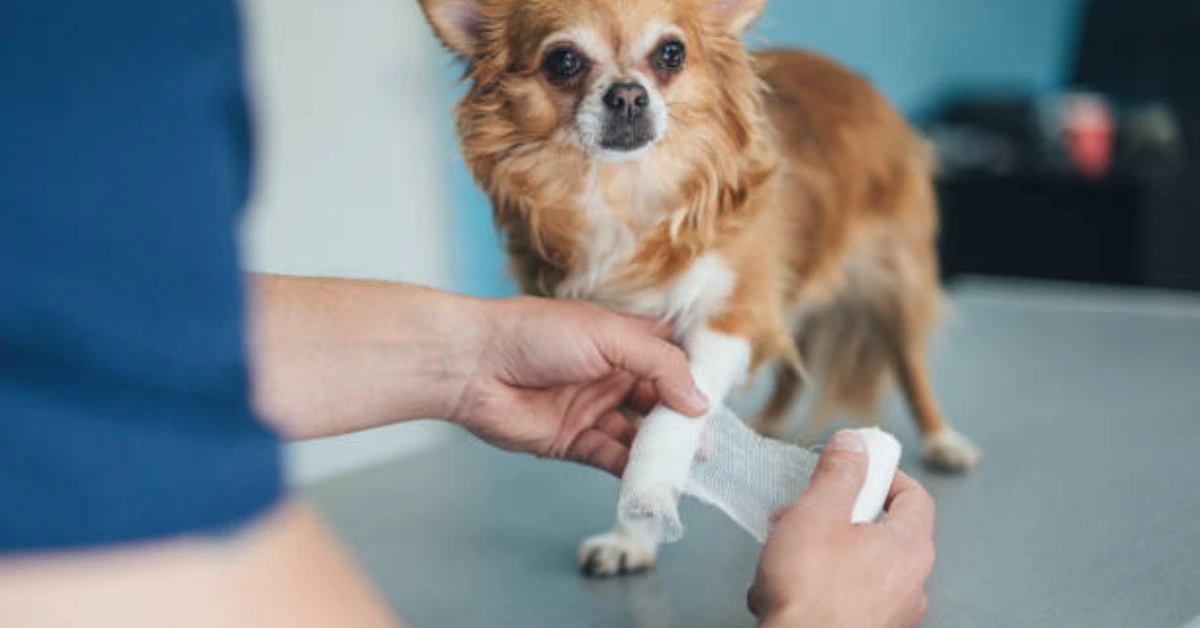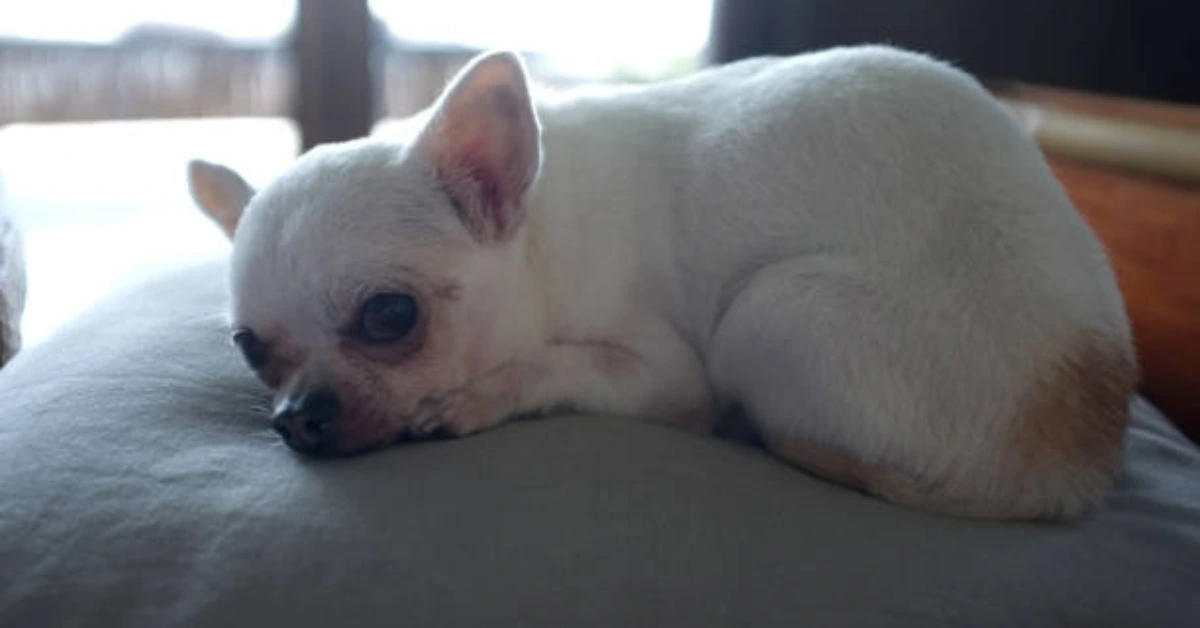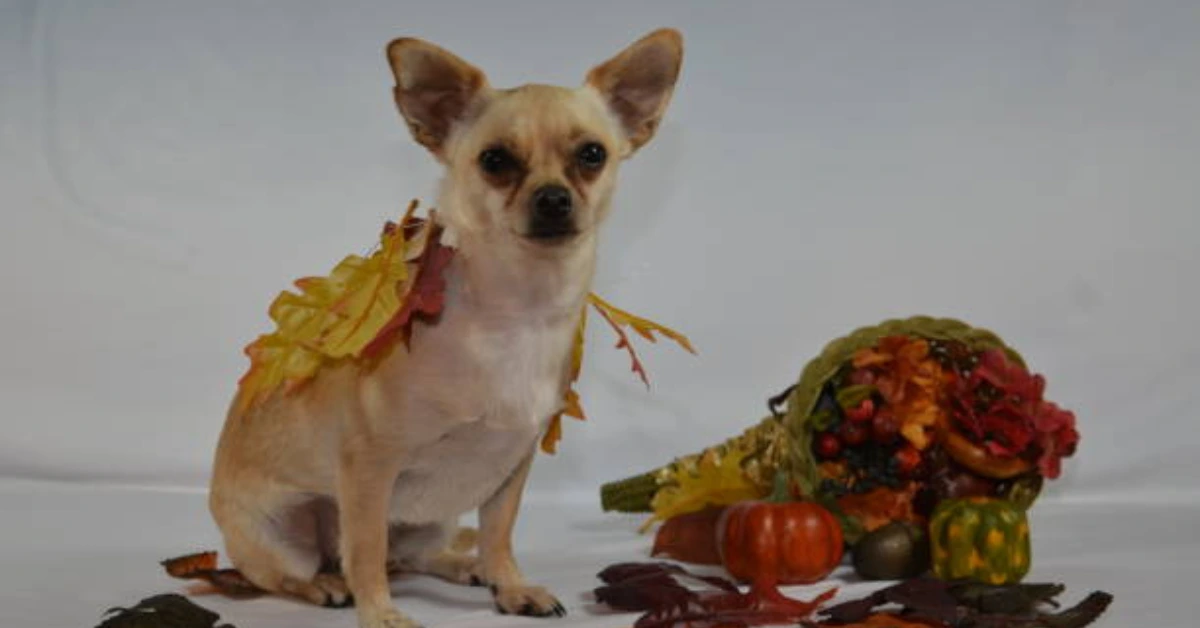This article addresses every possible problem that can arise in pups and dogs with coughing fits in Chihuahuas. We’ll examine the most common causes of Chihuahua’s cough.
Coughing might indicate a significant health condition in some dogs, but it can also be a minor problem in others. Furthermore, some disorders are both acute and chronic.
So let’s investigate this matter and identify the various kinds of coughing issues, symptoms, indicators that your dog may be experiencing, and available treatments.
We’ll go over both at-home remedies and situations in which consulting a veterinarian is indispensable.
Advertisement
1. A Deep, Dry, Hacking Cough
This might indicate kennel cough. This can also infect dogs who have never been near a kennel. It is an extremely contagious respiratory illness that affects the upper respiratory tract.
It affects the voice box and windpipe of dogs. The typical symptom of this is a very dry, deep cough, however, in some cases, dogs will honk, which is a sign of a collapsed trachea.
Symptoms of Kennel Cough
- A persistent, deep, dry cough
- dry heaving, or vomiting. This can happen if a Chihuahua coughs so much that it induces spasms.
- watery nasal discharge
- High-temperature
- Appetite decline
- Deficiency
Diagnosis
The veterinarian examines the Chihuahua and performs a blood test to diagnose this.
Treatment
Similar to how people must wait for a cold to pass, mild to moderate cases may be allowed to resolve on their own.
Anti-inflammatory medicine and cough suppressants may be good for a Chihuahua who is experiencing moderate to severe respiratory distress in addition to a severe cough. Antibiotics are only administered to dogs with fevers since fevers can develop into pneumonia.
2. Not Truly a Cough
Your Chihuahua might make some strange noises if they have a few small health problems, but it won’t be a cough.
Hiccups
In the same way that people do, dogs can get hiccups, which some owners mistake for coughing. Hiccups can happen out of the blue, or a Chihuahua may do them after working out or eating too quickly.
For example, anything that changes the dog’s breathing pattern can help them go away. So, giving your Chihuahua something to drink or eat can stop the spasm.
If all you use on your Chihuahua right now is a collar, you should think about getting something else. No matter what, you should never put a leash on a Chihuahua’s collar and let the pressure build up on its neck.
All Chihuahuas should use a leash while walking, no matter what age or size they are. You can also have more control with a harness, which is very helpful when teaching a Chihuahua to heel.
Reverse Sneezing
Dogs do this when they have twitches that make them quickly draw air into their nose instead of blowing air out as they sneeze. we call it “reverse sneezing.”
When this happens, a dog will stretch his neck out and make a noise that sounds like barking. and this might look like a cough, but it’s not. The exact reason for this is unknown, but it can get worse if a dog breathes in things like perfumes, cleaners for rugs, and so on.
Most of the time, this doesn’t last long and won’t hurt a dog. In random cases, medicine will not be given.
Anti-inflammatories, antihistamines, or decongestants may be given to a Chihuahua that has attacks that last a long time and happen often. Most of the time, rubbing a Chihuahua’s neck with long, smooth strokes can stop the spasms.
3. A wet cough with mucus
Several pathogens, including bacteria, fungi, viruses, and parasites, can cause pneumonia, which could be indicated by this. Pneumonia typically affects extremely young puppies or much older, senior dogs; most healthy adult Chihuahuas do not contract it.
Keep in mind that a Chihuahua who has experienced tracheal collapse is susceptible to pneumonia.
Symptoms of Pneumonia
- A cough that is quite moist. When a Chihuahua coughs, it often produces a moist spray of thin mucus.
- High temperature
- Breathing quickly
- quick heartbeat
- After some time without treatment, a Chihuahua with pneumonia may cough up bloody mucus and sit with his head held up and elbows bent, an instinctive move meant to help him breathe easier.
Diagnosis
The vet may perform Blood tests and X-rays to diagnose this.
Treatment
Any Chihuahua exhibiting symptoms of this kind of cough should be taken immediately to the nearest animal hospital or veterinarian because this is a very serious condition.
In addition to receiving antibiotics, the puppy or dog will require a follow-up appointment to ensure that the lungs have been cleaned completely.
4. A Goose-like Honking Noise
Any sounds that your Chihuahua makes that resemble honking may indicate that their trachea has collapsed. Additionally, the dog may seem to gag, gasping for air, and wheezing as though something is wrong with his airway.
Many dogs of the toy breed are prone to this quite dangerous ailment. A dog’s windpipe is a composition of cartilage rings. A blockage in the windpipe may result from the inward collapse of one or more of those rings.
This makes it harder for a Chihuahua to breathe, which results in coughing sounds that resemble honking from the puppy or dog.
One breed that is vulnerable to this problem is the Chihuahua. Some dogs are more vulnerable to this kind of injury because of a hereditary condition that makes their rings weaker than they should be.
In other Chihuahuas, injuries can still result in this even in cases where there isn’t a genetically weakened cartilage.
The main cause of this in Chihuahuas is that they are led on a leash that is attached to a dog collar. The extremely delicate neck of a Chihuahua is subjected to immense pressure and strain when it is walked on a leash and just wears a collar.
That pressure can crush a tracheal ring with little effort.
You should reconsider if your Chihuahua is currently simply wearing a collar. There’s never a good reason to put all the weight on a Chihuahua’s neck by attaching a leash to their dog collar.
No matter their size or age, all Chihuahuas should use a harness on walks. Better control is another benefit of harnesses, which is especially helpful when training a Chihiahua to heel.
Every time you use a leash, the harness needs to be put on and an ID tag can be fastened to the collar. Because the harness helps distribute weight over the shoulders, back, and chest rather than having it all go on the little neck, it is possible to prevent the dreadful condition known as a collapsed trachea with just one simple component.
Signs of Collapsed Trachea
- A cough that sounds loud. When the Chihuahua gets excited, eats, drinks, exercises, or it’s hot outside, the coughing could get worse.
- Breathing with difficulty. The dog may struggle to breathe and his lips may turn blue if his breathing is extremely difficult.
- Unwillingness to work out. This will be brought on by both the pain that follows such an injury and respiratory issues.
- After consuming water, coughing
Diagnosis
Since Chihuahuas are particularly prone to this, many skilled vets can diagnose this based only on the sound the dog is making and the breed. An X-ray could also work well to verify the diagnosis.
Treatment
Permitting the ring(s) to heal will be the primary objective. The vet may accomplish this by using bronchodilators, corticosteroids, and cough suppressants. Usually, two weeks are enough to determine whether this treatment is effective enough. If not, it might be necessary to have surgery.
Approximately 70% of dogs recover well enough to not require surgery, although they will still require continuous care, such as maintaining a healthy weight and, as previously indicated, wearing a harness rather than a collar.
5. Extended Coughing Only at Night or While Lying on the Chest
This type of cough is indicative of congestive heart failure, another name for heart disease. The heart weakens and is unable to adequately pump blood throughout the dog’s body.
It impacts Also numerous other body parts, such as the liver, kidneys, and lungs 
Signs of Heart Disease
The coughing will be irregular in the beginning. A dog may develop constant coughing in later phases. It’s possible that owners won’t become aware of the issue until their Chihuahua has been sick for a while.
Owners frequently are unaware that something is amiss until the heart weakens to the point that other parts of the body become affected. Because of this, yearly physicals are a crucial component of receiving the right care.
Diagnosis
A Vet may use an ECG and X-rays to diagnose this.
Treatment
6. Coughing up Blood
Hemostasis is the medical word for when a Chihuahua coughs up blood. There may or may not be foam and/or mucus present in the blood, which can be either fresh (red) or dried (black).
Hemostasis is the result of several distinct medical disorders, all of which are very dangerous risks that your vet needs to check out right once.
The most frequent ailments that result in a dog coughing up blood are:
- Food fragment or a foreign object lodged in the esophagus
- Heart disease: there may be blood clots that develop and are subsequently coughed up
- Heartworm Infection: This can result in pulmonary thromboembolism, a condition that pushes blood into the airways.
- Canine Pancreatitis: Pancreatic inflammation
- Cancer of the Lungs
- Tuberculosis: This dangerous bacterial infection can produce mucus and blood in a dog’s cough.
- Consumption of Toxin
Advertisement







